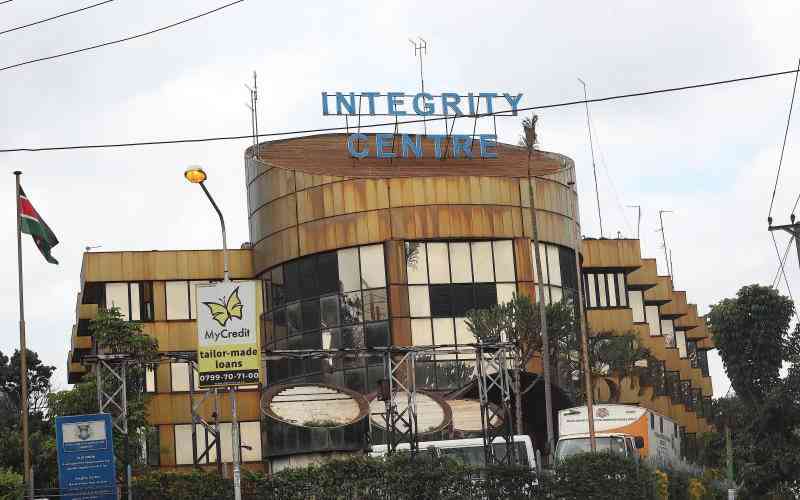NAIROBI: Kenya could be on the verge of losing another Anglo Leasing-related case. This comes amid reports of a major blunder by the National Treasury that could grossly undermine the country’s defence and cost taxpayers billions of shillings.
National Treasury Cabinet Secretary Henry Rotich last week said the Government is likely to go to court over the last Anglo Leasing-related case, and admitted the chances of winning could not be guaranteed.
He added that all but one of the disputes related to the 18 security contracts have been resolved.
“The fact is that there are no court cases; we paid and finished everything. They have all been resolved except one, which is still lingering and has the potential of going to court and which we could win or lose. That is the position,” Mr Rotich told Business Beat.
Although Rotich did not mention the exact case, reference has been made to a major slip-up by the National Treasury (then the ministry of Finance) in 2007 when it broke the law by hiring PricewaterhouseCoopers (PwC) to investigate graft allegations linked to Anglo Leasing contracts.
The firm’s report is the only forensic investigation done on the contracts, and Kenya has been basing its argument for the recovery of money already paid out on it.
However, this report was invalidated by the High Court in 2008 on the grounds that the Treasury had usurped the powers of the then Kenya Anti-Corruption Commission (KACC) by awarding PwC the contract to carry out investigations.
PAST ASSURANCES
Despite its promises to have the perpetrators punished, the anti-corruption body has not honoured assurances it would do so.
Further, its officials are yet to come out publicly about the ruling on PwC’s report being the biggest barrier to the country successfully prosecuting individuals involved in the Anglo Leasing deals.
In July 2008, the High Court ruled that the report by PwC was tainted with illegalities because the Treasury was not empowered in law to sign such a contract. The Anti Corruption and Economic Crimes Act (ACECA) mandated only KACC to carry out such investigations.
As a result, Kenya could not prove corruption in one of the contracts where Sh1.4 billion was paid to Universal Satspace and First Mercantile Securities Corporation, companies associated with businessman Anura Perera.
The two firms were awarded the money by courts in Switzerland and the UK.
In April 8 this year, Attorney General Githu Muigai wrote to Rotich, telling him that there were “no sufficient grounds” to appeal the 2012 decision and Kenya had to pay up.
CRIMINAL PROCEEDINGS
Stay informed. Subscribe to our newsletter
To push through their case for compensation from the Government, the petitioners in London and Geneva relied on a 2007 judgement given in Civil Application 359.
The 2007 suit involved Midland Finance & Securities and Globetel Inc (petitioners), with the Attorney General and KACC as respondents.
The petitioners claimed they feared the findings of the investigations by PwC may be wrongfully used by the AG and KACC to commence criminal proceedings against them.
They argued that the PwC contract was illegal as only KACC was empowered by law to investigate the matter.
 The Standard Group Plc is a
multi-media organization with investments in media platforms spanning newspaper
print operations, television, radio broadcasting, digital and online services. The
Standard Group is recognized as a leading multi-media house in Kenya with a key
influence in matters of national and international interest.
The Standard Group Plc is a
multi-media organization with investments in media platforms spanning newspaper
print operations, television, radio broadcasting, digital and online services. The
Standard Group is recognized as a leading multi-media house in Kenya with a key
influence in matters of national and international interest.
 The Standard Group Plc is a
multi-media organization with investments in media platforms spanning newspaper
print operations, television, radio broadcasting, digital and online services. The
Standard Group is recognized as a leading multi-media house in Kenya with a key
influence in matters of national and international interest.
The Standard Group Plc is a
multi-media organization with investments in media platforms spanning newspaper
print operations, television, radio broadcasting, digital and online services. The
Standard Group is recognized as a leading multi-media house in Kenya with a key
influence in matters of national and international interest.





